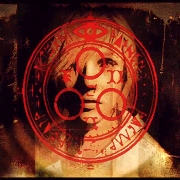|
It's not a non fiction work but Flaubert's Sentimental Education gives a good feel of the period between the Bourbon Restoration to the establishment of the Second Empire. Moreau, the protagonist, is such a myopic dip poo poo he doesn't really understand anything that's happening which ironically does a good job of representing how much political changes tend to happen around people rather, how much people are just swept up by the current with their heads down until their friend gets their head split open on the street. Also a beautifully written and hilarious work. Take it over Madame Bovary anyday
|
|
|
|

|
| # ? May 22, 2024 17:33 |
|
Gaius Marius posted:It's not a non fiction work but Flaubert's Sentimental Education gives a good feel of the period between the Bourbon Restoration to the establishment of the Second Empire. Moreau, the protagonist, is such a myopic dip poo poo he doesn't really understand anything that's happening which ironically does a good job of representing how much political changes tend to happen around people rather, how much people are just swept up by the current with their heads down until their friend gets their head split open on the street. what translation did you read? I found this one https://archive.org/details/sentimentaleduca00flauiala
|
|
|
|
VostokProgram posted:what translation did you read? I found this one https://archive.org/details/sentimentaleduca00flauiala Helen Constantine from the Oxford World Classic's version. I scanned the older one you linked and it doesn't seem terrible but it's comedic sensibility is a little off. More stilted and less elegant. The Oxford edition also offers a large amount of footnotes explaining various cultural and historical events and items, something that should be of particular note given Flaubert's thoroughness in his research.
|
|
|
|
I'm getting a vivid picture of the major cities during the Russian Civil War from Emma Goldman's My Disillusionment in Russia. She portrays Anatoly Lunacharsky and a few other bolsheviks as lonely defenders of humanitarian sentiment in a government ever more prone to military harshness. As for the other prominent figures she meets, we all know what happened to them.
|
|
|
|
Picked up battle cry of freedom and its pretty good so far.
|
|
|
|
My first time reading, I paid no attention or thought to the geography of the western theater. Vicksburg, Memphis, Mississippi, marching to the sea, none of it meant anything tangible to me compared to the obvious goal of taking Richmond.
|
|
|
|
my library didn't have an ebook for Sentimental Education, but they did have Madame Bovary, so I'm reading the latter first. its pleasant enough, reads a bit like 19th century simpsons.
|
|
|
|
PittTheElder posted:Just placed my pre-order for Kaldellis' The New Roman Empire, very excited for the arrival of October now. this post made me buy it.
|
|
|
|
Halfway through battle cry of freedom and wow what a tome.
|
|
|
|
Lawman 0 posted:Halfway through battle cry of freedom and wow what a tome.
|
|
|
|
Is there a good single volume history of Israel, or failing that just the founding/early years of Israel? Preferably one that acknowledges the humanity of Palestinians, no Exodus-style blowjobs
|
|
|
|
FMguru posted:Many people like to claim that BCOF isn't just the best single-volume history of the American Civil War, it's the best single-volume history of anything. I'm genuinely incredibly impressed since it's really filling in my gaps of knowledge wrt: political undercurrents leading to the death of the whigs and the rise of the gop.
|
|
|
|
Gripweed posted:Is there a good single volume history of Israel, or failing that just the founding/early years of Israel? Preferably one that acknowledges the humanity of Palestinians, no Exodus-style blowjobs The Bible
|
|
|
|
Gaius please
|
|
|
|
Starting Smil’s Energy and Civilization. Hope it radically reshapes my worldview!
|
|
|
|
Gripweed posted:Is there a good single volume history of Israel, or failing that just the founding/early years of Israel? Preferably one that acknowledges the humanity of Palestinians, no Exodus-style blowjobs Ilan Pappé's The Ethnic Cleansing of Palestine
|
|
|
|
For those interested in the history of american conservatism, this symposium on Leo Ribuffo is pretty interesting. https://www.youtube.com/watch?v=w5pYZKTp1Os Ribuffo was a historian of conservatism, before it was cool, and has a great rejoinder to Alan Brinkley titled “Why Is There so Much Conservatism in the United States and Why Do So Few Historians Know Anything about It” responding to "The Problem of American Conservatism" in the AHR symposium in 1994. Features thread favorite Rick Perlstein (check out his shout out to ribuffo https://www.nytimes.com/2017/04/11/magazine/i-thought-i-understood-the-american-right-trump-proved-me-wrong.html here) alongside Kim-Phillips Fein, Michael Kazin, Andrew Hartman, David Austin Walsh and others. As Perlstein describes him: quote:A few historians have provocatively followed a different intellectual path, avoiding both the bloodlessness of the new social historians and the psychologizing condescension of the old Hofstadter school. Foremost among them is Leo Ribuffo, a professor at George Washington University. Ribuffo’s surname announces his identity in the Dickensian style: Irascible, brilliant and deeply learned, he is one of the profession’s great rebuffers. He made his reputation with an award-winning 1983 study, “The Old Christian Right: The Protestant Far Right From the Great Depression to the Cold War,” and hasn’t published a proper book since — just a series of coruscating essays that frequently focus on what everyone else is getting wrong. In the 1994 issue of The American Historical Review that featured Alan Brinkley’s “The Problem of American Conservatism,” Ribuffo wrote a response contesting Brinkley’s contention, now commonplace, that Trilling was right about American conservatism’s shallow roots. Ribuffo argued that America’s anti-liberal traditions were far more deeply rooted in the past, and far angrier, than most historians would acknowledge, citing a long list of examples from “regional suspicions of various metropolitan centers and the snobs who lived there” to “white racism institutionalized in slavery and segregation.” plogo fucked around with this message at 22:10 on Nov 1, 2023 |
|
|
|
Lawman 0 posted:I'm genuinely incredibly impressed since it's really filling in my gaps of knowledge wrt: political undercurrents leading to the death of the whigs and the rise of the gop. After this, check out Brenda Wineapple's Ecstatic Nation as a good companion piece. I'm always going to rep Wineapple because her prose is just immaculate.
|
|
|
|
Fighting Trousers posted:After this, check out Brenda Wineapple's Ecstatic Nation as a good companion piece. Added to my list.
|
|
|
|
Starting Robert Lacey's history of the Ford company and its founding family. The index notes quite a number of entries for anti-semitism. "see also anti-semitism, blacks, isolationism, pacifism, populism"
|
|
|
|
Circling back as I near the end of Hitler's Social Revolution, while I appreciate the caveats and why I need to (someday) read subsequent scholarship on this topic, I do wanna share my favorite part of the text other than its often dense and detailed citations: Schoenbaum occasionally just shivs someone in the middle of an otherwise normal discussion paragraph. To give one of the milder examples, take this footnote quoting and knifing Sumner Welles, The Time for Decision, even while citing it positively as support for the position that external analysts looking at the Reich without the aid of a "historical-social calculus" would see what they wanted to see: quote:"Throughout the past one hundred years, whether the rallying point for German patriotism was the venerable figure of William I, Bismarck, the superficial and spectacular William II, the Marshal President Hindenburg, or, in most recent times, Hitler himself, public opinion in this country (the United States) has always been prone to take the figurehead as the reality. It has overlooked the fact that German policy during the past eighty years has been directed, not by the Chief of State, but by the German General Staff." Discendo Vox fucked around with this message at 08:17 on Nov 9, 2023 |
|
|
|
Hello, any recommendations for Barbarossa (Frederick, not operation)? Looking for something narrative for preference
|
|
|
|
So I've been in a Homeric mood recently and read some books to that effect. First up, a fairly new release, in Robin Lane Fox's Homer and his iliad  Robin Lane Fox is a historian of the ancient world, having written, amongst other works, fine biographies of both Alexander the Great and Augustine of Hippo. He has also written about the ancient Greeks' slow colonial expansion (Traveling Heroes) and a cursory glance at the historicity of the Bible (The Unauthorised Version), good reads all. His latest publication, released in July of this year, is a pleasant excursion to one of ancient history's most enduring question, being the Homeric one: What are the origins of the Iliad? Can we ascribe it to any one person (Homer?) or to a string of different poets? How and when did this timeless epic emerge? Is its origin to be found within ancient Anatolian traditions, or is it the brainchild of some bard entertaining troops on campaign? These and many more are the points of interest that Lane Fox takes us through, but he doesn't stop there: Lane Fox takes us through the Iliad, not as a whole, but highlights themes that he deems particularly moving and elegant. Lane Fox is clearly in love with the Iliad and his book is a delightful love letter to this borderline cliché addition to the human story. Note: The book only touches upon the Odyssey in a very roundabout way: The Iliad is the primary focus. I also recently finished The War That Killed Achilles: The True Story of Homer's Iliad and the Trojan War by Caroline Alexander (2009).  I have not read anything else by Alexander but this relatively short foray into the Iliad is a well-put-together study of the story, with a clearer thesis as to the overarching story at play: Alexander presents an elegant interpretation wherein Achilles is revealed to be far more weary of war and bloodshed than one might have initially assumed. Alexander does not dwell on the complex linguistical history of the Iliad quite as much as Lane Fox's work, and the book is generally less interested in the "Homeric Question". Instead, the Iliad and its characters are front and centre. Alexander is clearly just as enamoured with the epic as Lane Fox, which is quite strikingly underlined in the penultimate chapter of the book, which is simply her translation of the 22nd book of the Iliad in its entirety. For the rest of the epic she will quote and comment in a pleasant, easy to read way, but for what she deems to be a book "too perfect to be fragmented by commentary", she instead lets Homer present on his own (albeit in English) terms, the climatic duel between Achilles and Hector. Both these works made for a delightful visit to the world of the Iliad, with all its perplexities, unanswered questions and moving characterisations. I heartily recommend them both for those who, like me, will never stop marvel at the immortality of Homer.
|
|
|
|
I’m reading a book called Weimar Culture by Peter Gay, I’m pretty deep into it and not come across any discussion of queer people or culture in Weimar Germany, so I flip through the index and discover this book doesn’t even have so much as a single reference to Magnus Hirschfeld. This is flagrant fake advertising, I want a refund.
|
|
|
|
I'd prefer that to how Before the Deluge by Otto Friedrich handles it.quote:In its weakest passages Deluge reflects the time in which it was written, as when Friedrich compares German radicals of the ‘20s with the contemporary student Left, indulges in casual homophobia (we are, of course, reminded of Ernst Rohm's predilections) or dismisses pioneering sex researcher Magnus Hirschfeld as a “pseudo-scientific pornographer.”
|
|
|
|
Gripweed posted:I’m reading a book called Weimar Culture by Peter Gay, I’m pretty deep into it and not come across any discussion of queer people or culture in Weimar Germany, so I flip through the index and discover this book doesn’t even have so much as a single reference to Magnus Hirschfeld. This is flagrant fake advertising, I want a refund. i remember reading about that book and how it was mostly about architecture and stuff and i just lost interest completely.
|
|
|
|
I have Weimar Germany: Promise & Tragedy by Eric Weitz and I plan to get to it.... eventually. Looks like a nice book with lots of pictures
|
|
|
|
just finished Heather Anne Thompson's 2017 History Pulitzer winner "Blood in the Water" and I have never been more ACAB in my life
|
|
|
|
quote:We’re now up to ’45. The Germans were getting ready to surrender en masse. Just thousands and thousands. Kamerad, kamerad. And that’s when we came to Buchenwald. I think it was Buchenwald. The Good War has a lot of important stories to tell. I'm glad that World War Z made me aware of the book's existence, so many years ago. Many different points of view, but the common thread is that almost every interview subject is horrified by what they, their loved ones, or strangers on the other side of the world went through.
|
|
|
|
I just finished the first volume of Jonathan Sumption's hundred years war books. And man if you want to get a feeling for how expensive war is, this is the book for you, as pretty much 50% of the book is some king or another begging for money from anyone who would lend it to them to pay for the war. Also get a good sense of how much more efficient modern governments are at extracting taxes from people in comparison to their medieval counterparts.
|
|
|
|
dokmo posted:I just finished the first volume of Jonathan Sumption's hundred years war books. And man if you want to get a feeling for how expensive war is, this is the book for you, as pretty much 50% of the book is some king or another begging for money from anyone who would lend it to them to pay for the war. Also get a good sense of how much more efficient modern governments are at extracting taxes from people in comparison to their medieval counterparts. I'm currently on book three, I think the wildest thing is that no-one ever seems to learn from their mistakes when it comes to logistics. "This year we'll be able to requisition all the ships we need on time, and the taxes will bring in the amount we expect. I know it didn't work out the last twenty years, but I've got a good feeling this time."
|
|
|
|
I recently finished book five, and my main takeaway was "wow, it's amazing how much bad stuff happened because there was nobody whose actual job it was to make bad stuff stop happening, and nobody who might have put an end to it was willing to pay the political price of doing the smart/right thing."
|
|
|
|
Rand Brittain posted:I recently finished book five, and my main takeaway was "wow, it's amazing how much bad stuff happened because there was nobody whose actual job it was to make bad stuff stop happening, and nobody who might have put an end to it was willing to pay the political price of doing the smart/right thing." Whew, glad I live in a more civilized, liberal age
|
|
|
|
Almost done with The Search For Modern China. Spence’s coverage of post-1976 China is stronger than the Mao years.
|
|
|
|
FPyat posted:The Good War has a lot of important stories to tell. I'm glad that World War Z made me aware of the book's existence, so many years ago. Many different points of view, but the common thread is that almost every interview subject is horrified by what they, their loved ones, or strangers on the other side of the world went through. Oh yeah I need to reread that, it had a lot of perspectives wouldn’t have thought of like the pacifist guy who refused any alternative service & they didn’t really know what to do with him so I think he bounced around jails for the duration.
|
|
|
|
dokmo posted:I just finished the first volume of Jonathan Sumption's hundred years war books. Goddamn it, I need some audiobook versions of these being available for me to listen to while I'm on the exercise bike.
|
|
|
|
I started reading Yugoslavia: Death of a Nation and in the introduction they say that a big part of their thesis is that the problem was the US didn't intervene early or hard enough. I don't think I'm gonna vibe with this book.
|
|
|
|
I've got some audible credits that need to get used up and I'd really like to start listening to some well-researched and narrated historical nonfiction, particularly about geopolitical conflicts of the last century. It's still a very broad brush but I'm quite open to anything, including historical nonfiction outside of that category. Any notably good audiobooks I should snag?
|
|
|
|
Gripweed posted:I started reading Yugoslavia: Death of a Nation and in the introduction they say that a big part of their thesis is that the problem was the US didn't intervene early or hard enough. Given the fact that it was mass ethnic cleansing on all sides in that war, everyone should have intervened hard. I doubt there will ever be a Shake Hands with the Devil level boom about the Yugoslav Civil war, but there should be.
|
|
|
|

|
| # ? May 22, 2024 17:33 |
|
Looking for some general history book suggestions for the new year! 
|
|
|






























